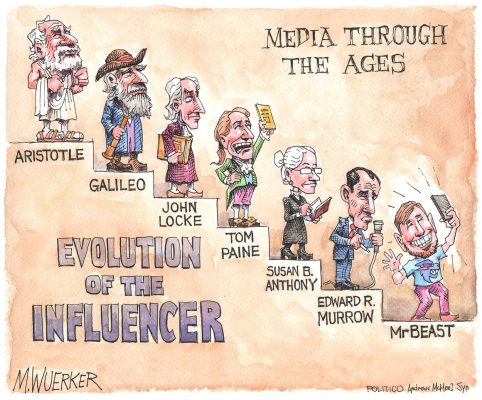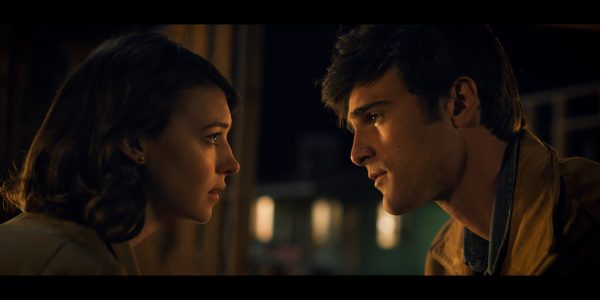
Psychologist Dr. Rebecca Foo, executive director at Switzer Learning Center, carries on the legacy of fostering youth with learning difficulties
Last month, Switzer Learning Center held its graduation ceremony in its usual form, with every graduating senior taking turns giving speeches. It was a cause for celebration, with every one of them recognized as a valedictorian and awarded a $1,000 scholarship for college or vocational school. But undeniably, Dr. Rebecca Foo, the Center’s executive director, felt the gaping absence of her mentor and friend, the revered psychologist and founder Dr. Janet Switzer, who’d passed away last November.
“It was our first graduation without her,” recalls Dr. Foo. “I acknowledged that and started to cry up on the podium. I was like, ‘Oh shoot, I didn’t mean to do that!’”
Switzer Learning Center, a nonprofit based in Torrance, is a haven for some 90 students from fourth to 12th grade whose learning, emotional or behavioral challenges, such as dyslexia, attention deficit, hyperactivity and autism, renders a need for individualized education plans and, more importantly, genuine care and attention from a multidisciplinary staff. To date, some 5,000 students have walked through its doors. Many regularly return to visit their Switzer family. Some still send Dr. Foo handwritten cards on Mother’s Day.
Dr. Foo, a licensed psychologist, heads a staff of 70 that includes credentialed special education teachers, counselors, therapists, speech pathologists and behavior interventionists. About 30 of them are one-to-one aids for students with severe behavioral problems. She reminds the staff that the kids don’t care about how much they know but how much they care.
“It’s an amazing team of dedicated people who could make a lot more money working somewhere else,” the youthful 60-year-old explains one afternoon in her office. The campus is much quieter than usual, as the Center is in the middle of summer break. “We’ve got people from all walks of life, some people who’ve been there, done that, and come from bad environments, too. There’s quite a few of us like that here.”
Dr. Foo is visibly hesitant when asked to expound on her childhood. Her countenance behind her frameless glasses remains calm and kind. She pauses, smiles, starts to talk then pauses again.
“I have a very interesting, different, unusual background that I could literally write a book about, and it would be better than reality TV,” she says. “I don’t want this to be a self-aggrandizing article.”
Yet how she was raised, as a victim of neglect, abuse and poverty, is part of the big picture, the part that emboldens her to help children in similar circumstances. About half of Switzer Learning Center’s student population lives in poverty-level households, and a third are in foster homes, group homes or kinship care.
Dr. Foo’s been through it all: Her mother chose “partying” over her children. She was treated like an adopted child in her family — she was the only one of Asian descent among her siblings, who all had different fathers. Her great-grandmother raised them all on social security checks and sewed all their clothes by hand; sometimes they went without food. When she was 13, she remember raising her three-week-old brother as if he were her own, feeding him and putting him to sleep in her room. “A lot of people thought I was a teen mom,” she says.
When she entered middle school, she got mixed up with Mexican gang leader boyfriends. In high school, her African-American boyfriend, another gang leader, got stabbed to death. She describes herself as an “okay” student during this time.
“I think probably the school counselors didn’t think I’d amount to much,” she says. “But years later when I went to school to become a psychologist, I found some old testing records and found out I scored in the top 10 percent in the nation on all those tests, but no one did anything to encourage me to go to college or anything like that.”
At the age of 23, her life took a turn when she enrolled at El Camino College at the urging of the late Pastor Ed Johnson, who she fondly refers to as a mentor. She chose to study psychology as a means to focus inward and improve herself while understanding the drive of the people in her life. She wanted to understand the interplay of nature versus nurture.
“I wasn’t sure I was smart enough, and I had pretty much no self-esteem,” she remembers. “It was a big deal for me to go with fear and trembling to my first class.”
After obtaining bachelor’s and master’s degrees from Cal State University of Dominguez Hills, Dr. Foo went on to earn her doctorate in psychology at the University of Southern California, specializing in the behavioral, social and academic issues of special needs children and adolescents. Her desire to help herself had transmuted into a burning desire to provide hope and direction for youth who have the odds stacked against them. Oftentimes, these individuals are limited in resources and imagination, without the means to see past the confines of their low socioeconomic status.
“Then somebody believes in you or exposes you to those things, and it opens up a whole other door for you,” she says. “That’s what we do for our kids here.”
Switzer Learning Center will celebrate its 50th birthday this month. It’s doubled in size since Dr. Foo started there as a predoctoral psychology intern in 1988, then known as the South Bay Center for Educational Therapy. In 1966, Dr. Switzer founded the Center in a Hermosa Beach storefront, which quickly became established as a pioneer in educational therapy for kids with learning and emotional problems.
“She was a feminist, an activist and someone who cared deeply about trying to help the kids and get them to use their strengths to compensate for their weaknesses,” Dr. Foo recalls of her supervisor. “And that really appealed to me.”
The admiration was mutual. When she inquired whether she could stay at the Center to fulfill her license qualifications, Dr. Switzer responded by asking her if she would take her place as the executive director so she could retire.
“I said, basically, no,” Dr. Foo recalls. “I’d worked all my life as a manager in business and I’d just finished grad school to become a psychologist. I didn’t want to be an administrator. I told her no for six years until she had a heart attack.”
In 1994, Dr. Foo reluctantly took the helm on an interim basis. Six months later, having witnessed the fast and wide impact of her work, she officially took the job. It’s not difficult to see and appreciate her legacy at the Center, now spanning 21 years.
Today, the Center has three principal programs: the Heritage program, which allows students to dual enroll at public schools; the Spectrum program, which builds social, emotional and relationship skills for middle and high school students that fall in the autism spectrum; and SAIL Transition program, which teaches independent and transitional skills to students ages 18 to 22 with autism, providing shadow job internships at local businesses and welding classes, to name one.
Maintaining these services amid the aftermath of a recession which dramatically cut the Center’s funding from the dozen school districts it partners with has been a struggle, Dr. Foo explains. But she is not one to fold in the face of a challenge.
In 2005, when the Center moved to its current location, Dr. Foo designed every square inch of the two buildings on her kitchen table, “every piece of furniture, every outlet and fixture,” she recalls. With the help of an old friend, she took on the role of construction manager because the Center at the time couldn’t afford one. Self-described as a hands-on, hyper-organized, obsessive-compulsive type, she has also put her computer science minor to use, converting handwritten bookkeeping items into an efficient digital system.
Her boundless work at the Center has not gone unnoticed. In 2006, she was named the California Woman of the Year for the 53rd Assembly District, and in 2012, a Woman of Distinction. In 2010, El Camino College named her a Woman of Distinction. She’s also served in various capacities for the California Association of Private Special Education Schools board since 1998, as regional coordinator, board president and secretary.
Outside of this realm, Dr. Foo is a serious horse lover. She spent a dozen summers in Colorado on a wrangling job. Since participating in the South Bay Dancing with the Stars last year, a new passion has taken center stage. She’s been taking nightly lessons in West Coast swing, Argentine tango, salsa and bachata at IM Dance Happy Studios in Torrance and plans to compete in West Coast swing in her first Jack and Jill competition next year.
“I feel like I’m 36,” she says, chuckling. “I can keep up with people way younger than I am and enjoy life. That’s a good thing and I hope to continue that for a long time. I think being here keeps you young.”










